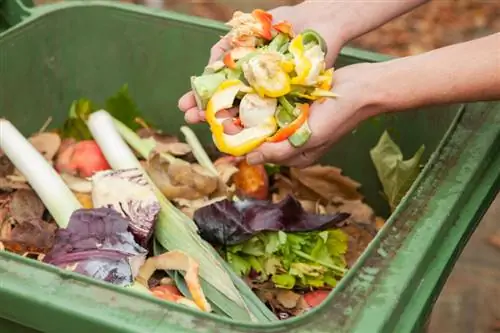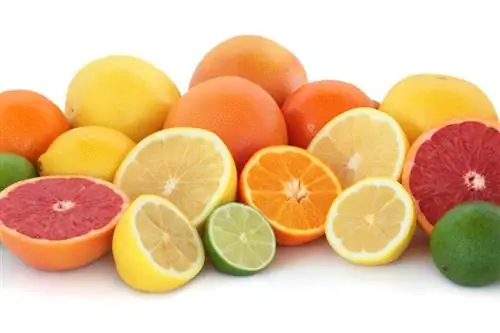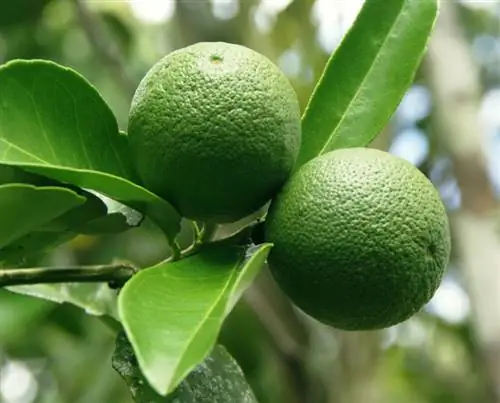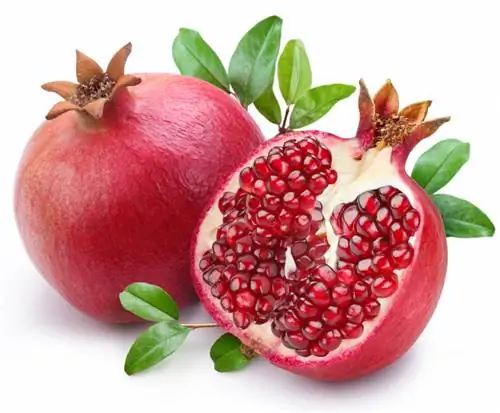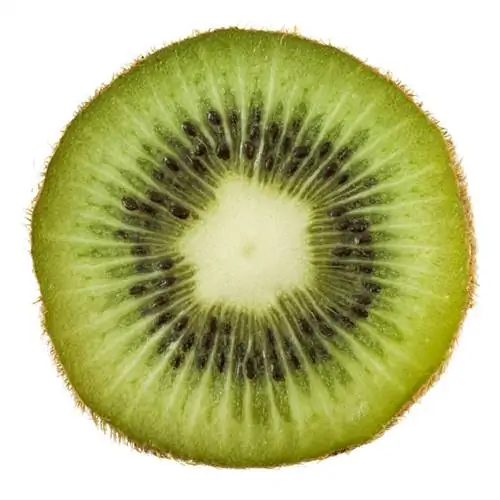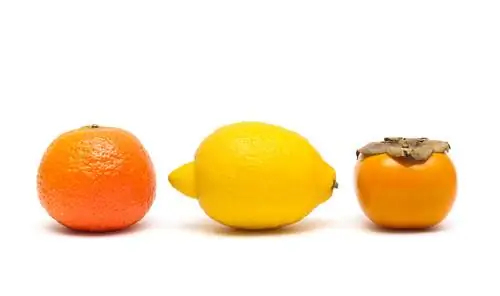- Author admin leonars@hobbygardeners.com.
- Public 2023-12-16 16:46.
- Last modified 2025-06-01 06:02.
Many people believe that citrus fruits should not be composted. However, this is a misconception. Of course, the peels of lemons and oranges can go into the compost heap. They just rot more slowly than other organic materials.
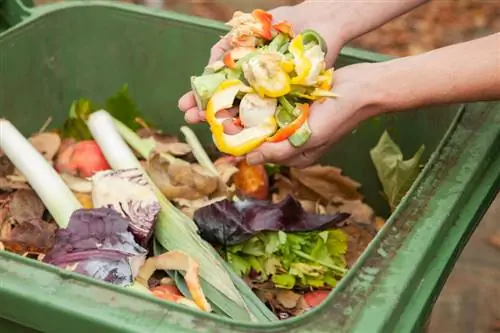
Are citrus fruits suitable for compost?
Yes, citrus fruits can be easily composted, although their peels are thicker and rot more slowly than other fruit scraps. Mix citrus fruits with other organic materials, such as leaves or grass, keeping their proportion to a maximum of 10% of the total. Harmful substances and wax are broken down in the composting process.
Citrus fruits - mostly sprayed and waxed
The peel of most citrus fruits
- Oranges
- Lemons
- Mandarins
- Clementines
from the supermarket contains residues of pesticides. The peels are also waxed so that the fruit can withstand the long transport routes on the ship better.
For many gardeners, the question arises as to whether the compost is contaminated with harmful substances by the sprays and whether the shells actually rot due to the wax.
If you harvest your fruit from the lemon or orange tree in the greenhouse, sprays and wax obviously don't play a role.
Citrus fruits rot easily
The peels of oranges and lemons are usually quite thick. The rotting process therefore takes a little longer than with other fruit residues such as apple peels.
Since a compost heap should mature for at least two years, this time does not matter. The microbes and bacteria do their best to break down even thick shells.
If you sift through the compost after two or three years, you will no longer see any citrus fruit peels - assuming you set up the compost heap correctly.
Contaminants and wax don’t play a role
The amount of pollutants on the citrus peels is quite low. Heat and bacteria break down the pollutant components so that they are virtually undetectable in the finished compost.
The danger from the spray agents comes from the fact that the fruits are touched with the hands to peel or squeeze and thus end up in the human body.
What applies to pollutants also applies to wax. This is also broken down quite quickly by the bacteria and is no reason not to compost the bowls.
Setting up the compost heap correctly
Problems only arise if you assemble the compost heap incorrectly. Materials are mixed in a professionally created pile.
If you want to compost larger quantities of citrus fruits, mix them with other organic materials such as leaves, grass or even cardboard. This causes orange and lemon peels to rot a little faster.
Tips & Tricks
He alth and gardening experts recommend that the proportion of citrus fruits should be a maximum of 10 percent of the amount of other organic materials. Higher amounts delay the rotting process.

